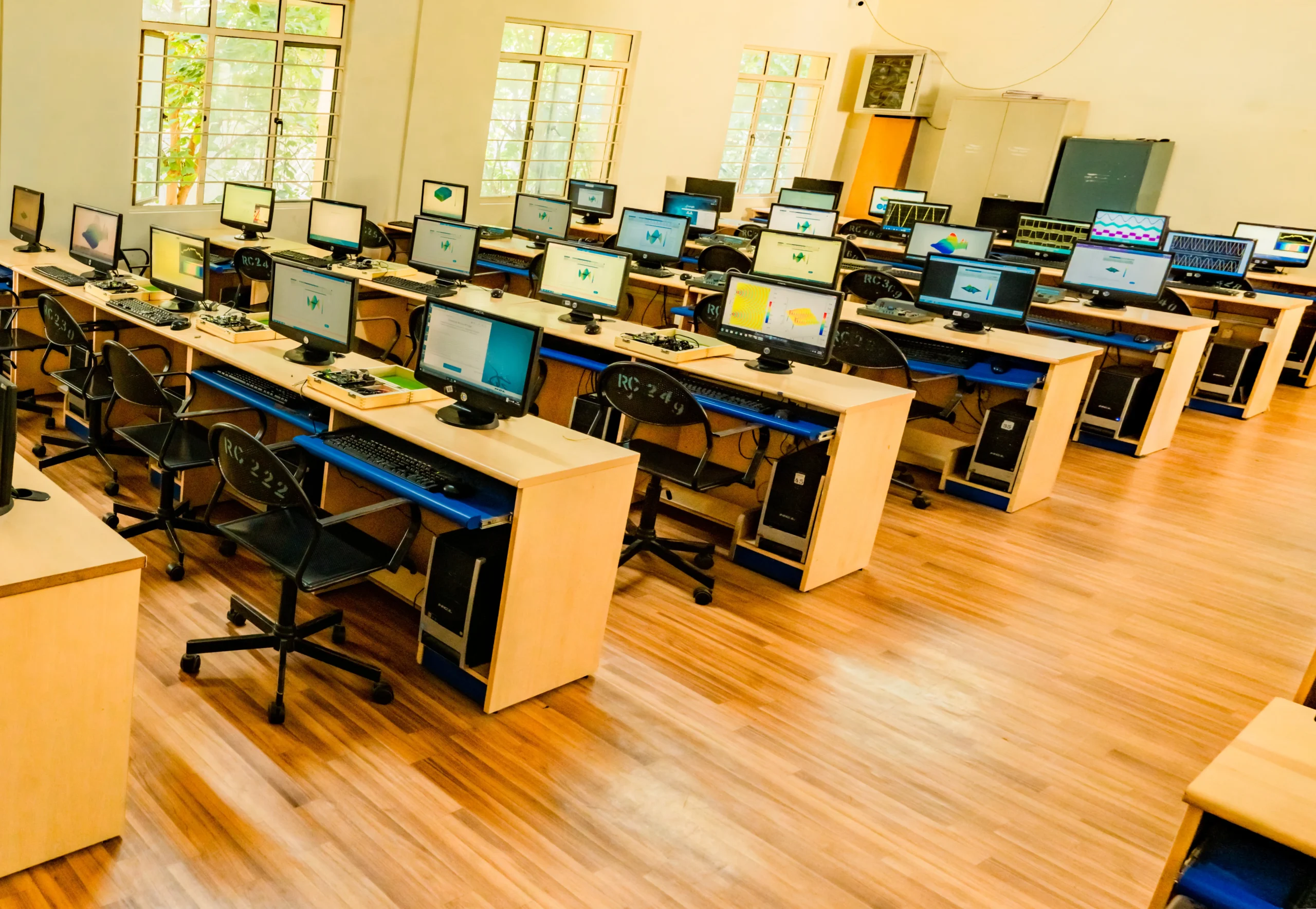Laboratory Facilities
Department of Electronics and Communication Engineering
Electron Devices and Analog Electronic Circuits Laboratory
In Electronic Devices and Circuits Laboratory students learn to design ,build and debug basic electronic circuits. They experiment with resistors, capacitors, transistors, integrated circuits, master measurement equipment such as digital meters, digital storage oscilloscopes and develop practical circuit design skills.
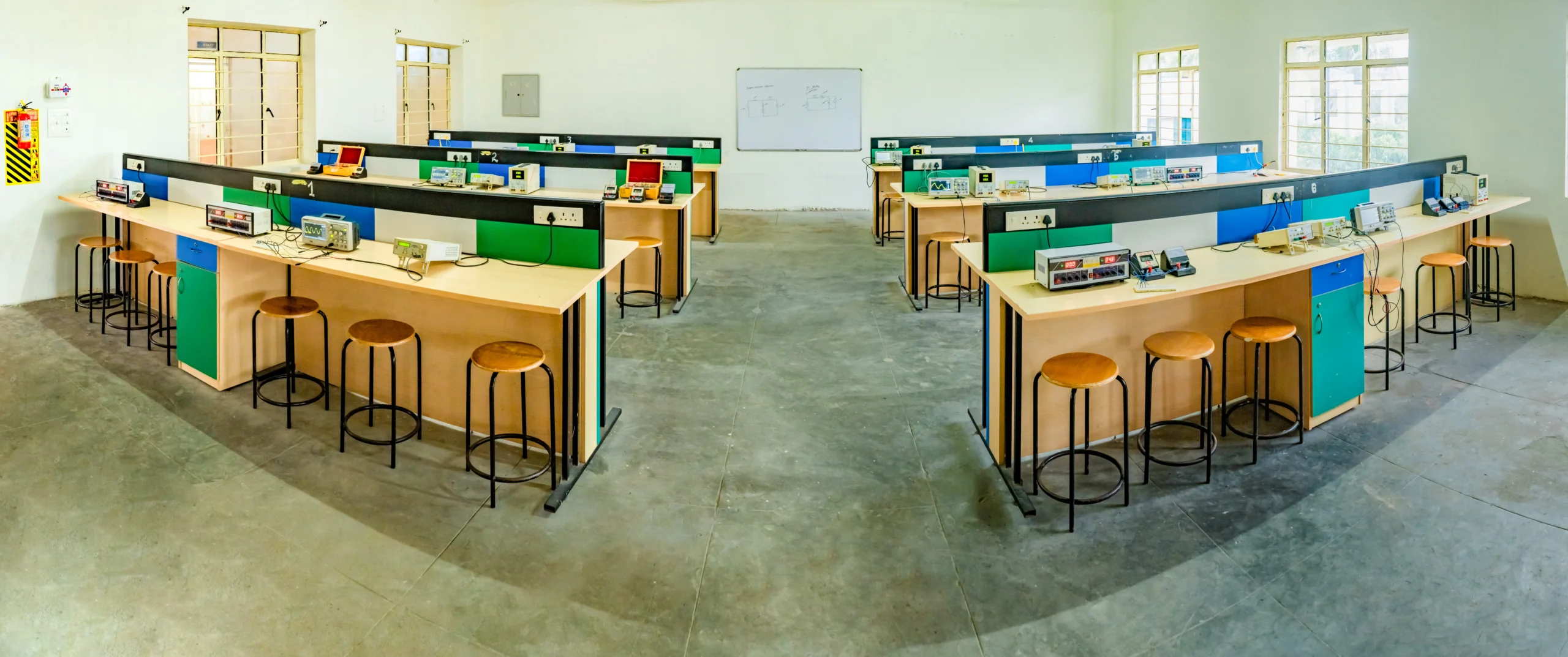
Digital System Design Laboratory
In this lab, students design and build logic circuits using both digital ICs and HDLs (Verilog/VHDL). They learn the design process from concept to realization, employing standard tools like Vivado and ModelSim for simulation and verification. This lab is equipped with Digital IC Trainer Kit, which holds Logic gates, Universal gates which can be used for Flips-Flops, counters, registers, multiplexer and de-multiplexer.
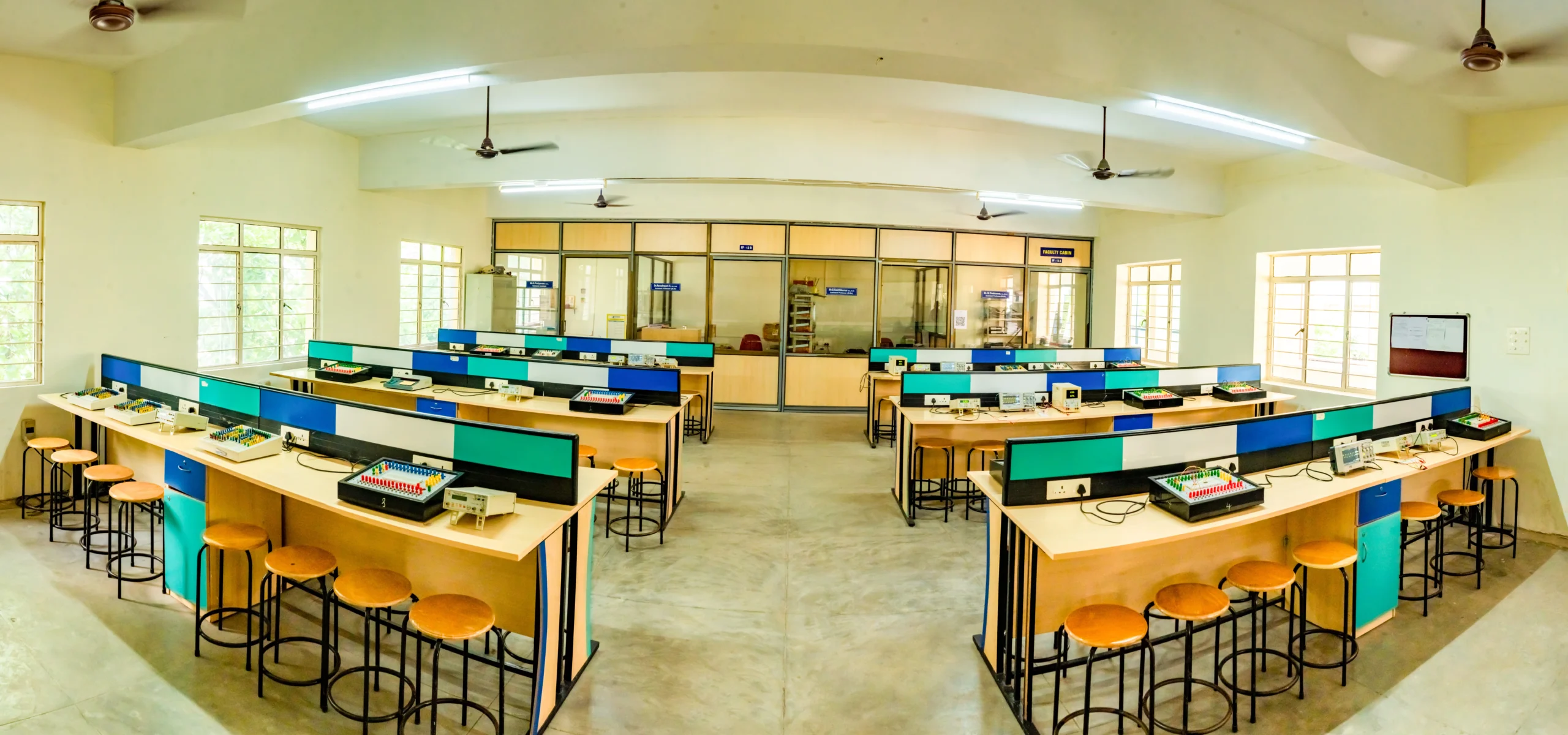
Microprocessor and Microcontroller Laboratory
The Microprocessor and Microcontroller Laboratory aims to provide students with a strong foundation in microcontroller architecture and its programming. The students learn both Assembly Language/Embedded C programming of Microcontrollers. The laboratory has state of art Microprocessor & Microcontroller Trainer kit, simulation tools, evaluation kit, IDEs and other interfacing devices.
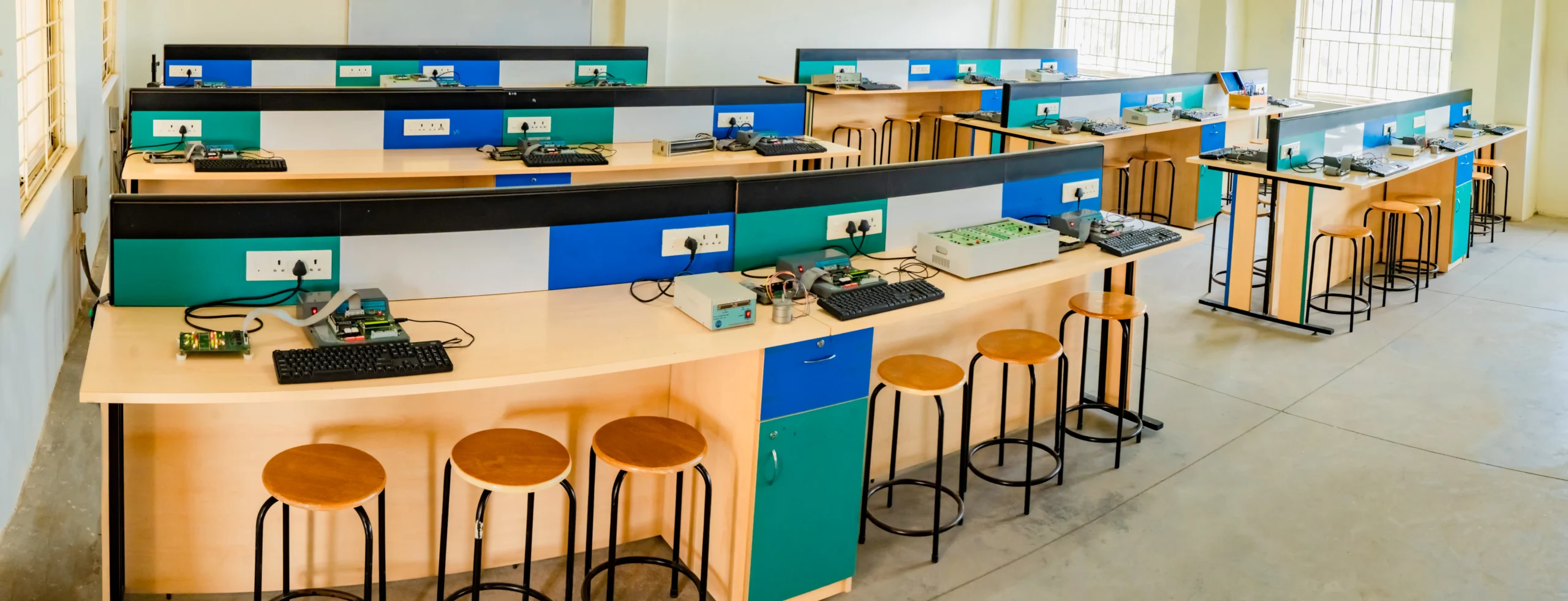
Embedded System and IoT Laboratory
This is a workspace for the students to explore the connection of hardware and software in connected devices.The available software packages include Keil software for ARM processor, C Compiler, Python, RTOS and target boards of Keil, Logic Analyzer, TEXAS code composer studio. The students learn to integrate sensors, actuators, and communication modules with CC3200, MSP430, PIC, Arduino, Raspberry Pi, and specialized development kits.
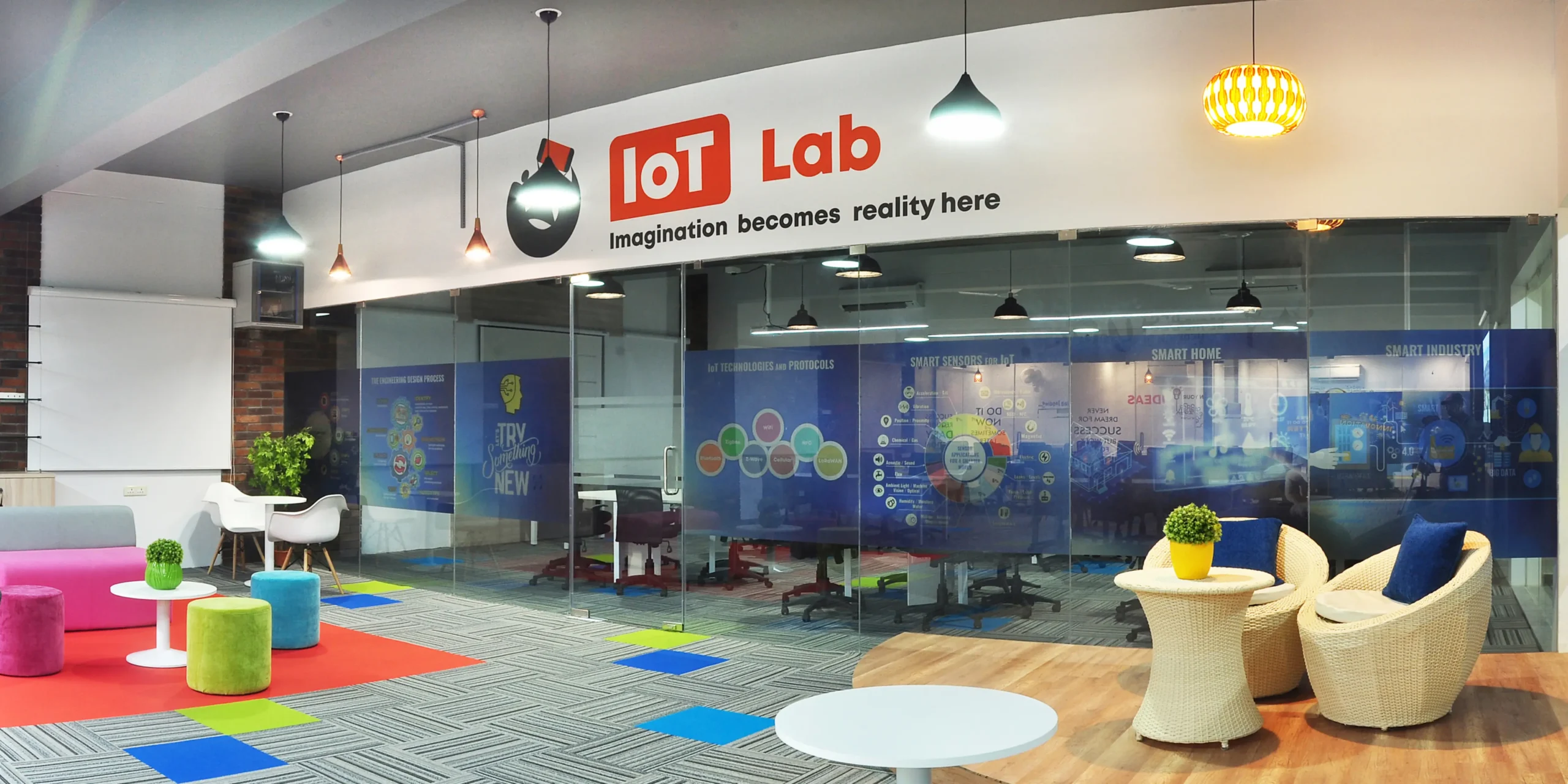
Communication Systems Laboratory
The Communication Systems Laboratory emphasizes hands-on use of equipment such as spectrum analyzer, oscilloscopes, and signal generators to analyze and design communication systems. Students engage in practical experiments that involve simulating and implementing modulation schemes like AM, FM, and digital modulation techniques such as QAM, GMSK, QPSK, and OFDM.
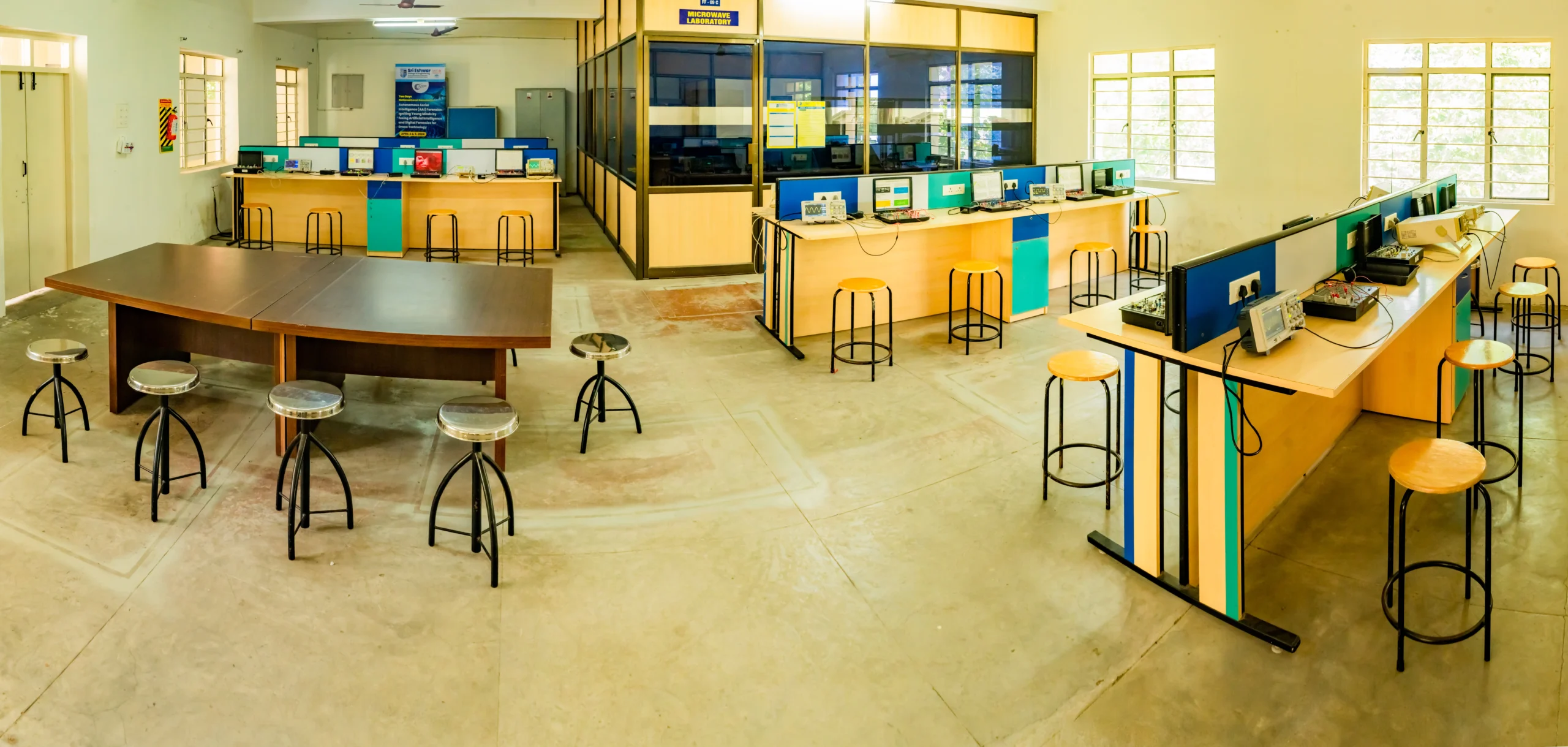
VLSI Design Laboratory
In this lab, the students focus on creating complex integrated circuits from digital logic to analog circuits. The lab is Wi-Fi enabled and equipped with industry-leading EDA tools such as Cadence design systems, Vivado and EDA playground to simulate, and synthesize. The Hardware available in the lab for implementation is Xilinx/Altera based FPGA and Zync series SoC boards.
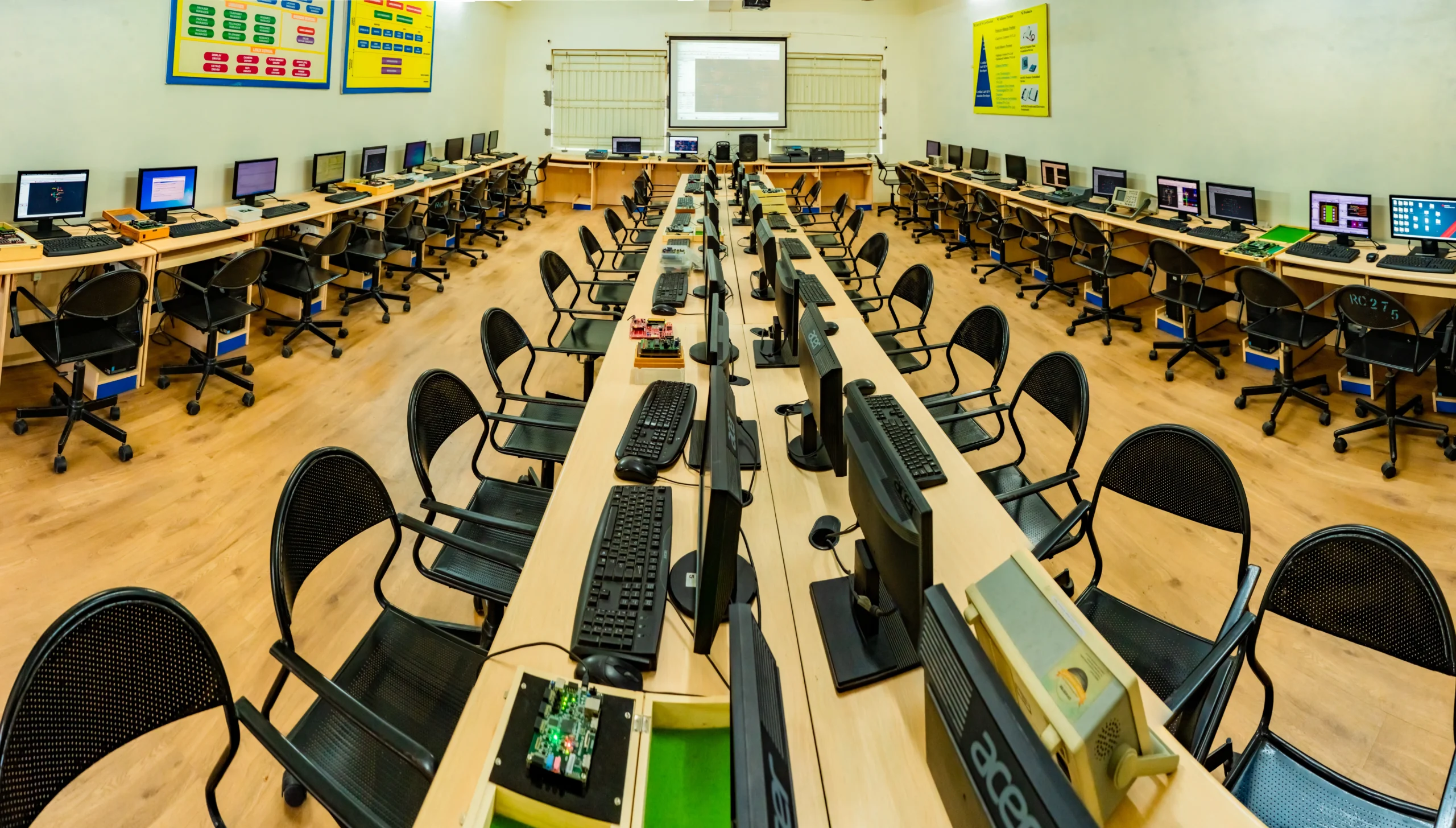
Computer Networks and Security Laboratory
Computer Networks and Security Laboratory is 5G Supported Wi-Fi enabled and Core I3 Processor, 4GB RAM, 500GB HDD to engage the students to understand the working of protocols at various layers of network architecture and to design, implement, and troubleshoot the computer networks and learn about security. They configure network devices, set up LANs and WANs, and explore protocols such as TCP/IP, DNS, and DHCP and simulate using Wireshark, Packet tracer, etc. This laboratory also provides students with a practical experience with artificial intelligence, machine learning, and data science concepts.
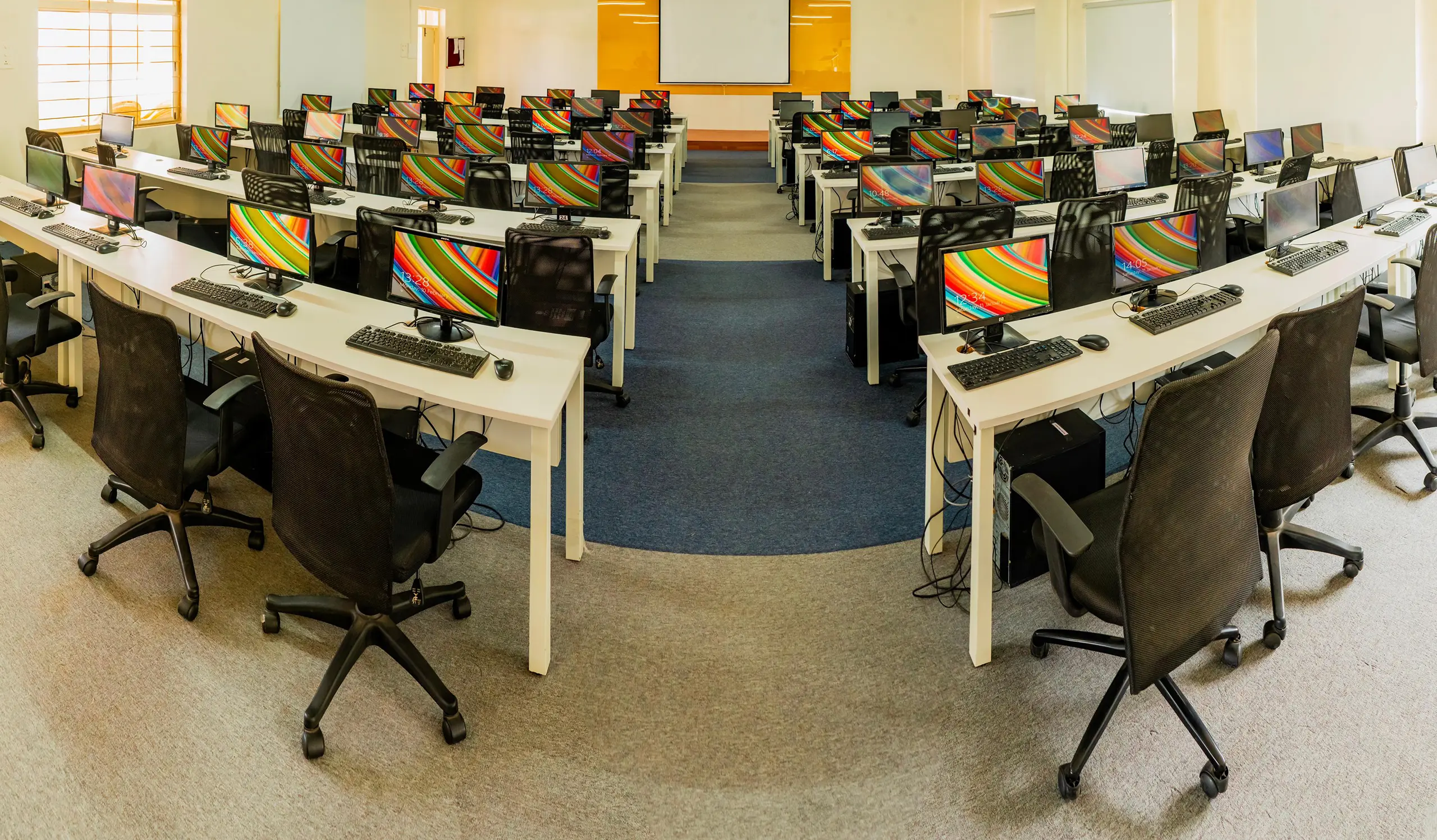
Microwave and Optical communication Laboratory
The students explore technologies related to high-frequency electromagnetic waves and optical signals. They work with equipment such as microwave benches, signal generators, spectrum analyzers, and optical components like lasers, fibers, and photodetectors. Students learn to analyze signal propagation characteristics, evaluate system performance metrics like bandwidth and signal-to-noise ratio, and optimize communication links for various applications.
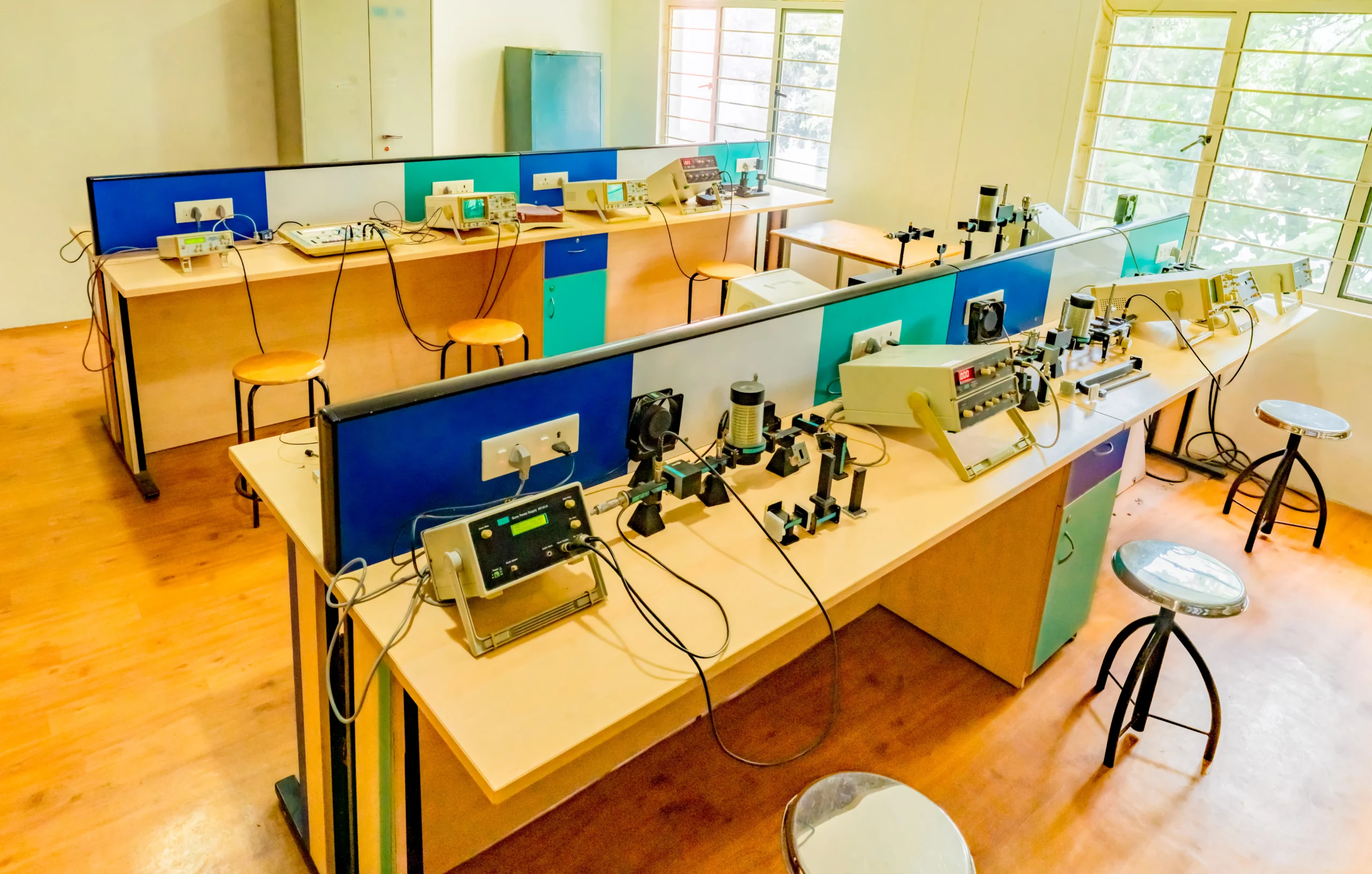
COME JOIN US TO
EXPERIENCE LEARNING
AT ITS BEST!






